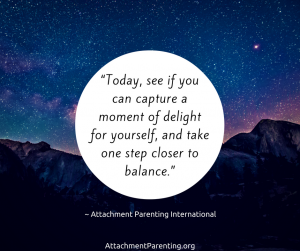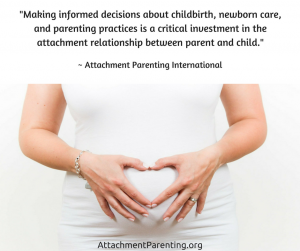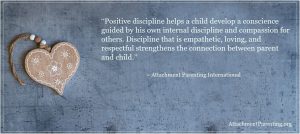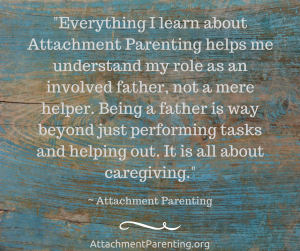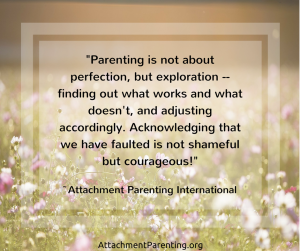Category: APtly Said
Sharing gratitude on a nightly basis
 Before my children go to sleep at night, I have 3 questions that I ask them:
Before my children go to sleep at night, I have 3 questions that I ask them:
- What did you learn today?
- What was your favorite part of the day?
- What are you grateful for?
These questions have become a ritual for us as we have been doing it for years. We continue to do so even as we navigate the middle school days for my youngest and now are moving into the high school years for my oldest. I know we all look forward to this time of connection as it opens up a conversation that goes beyond the simple responses to those questions.
I have been surprised to find that the topic about gratitude is often the one that is discussed the most. There is an appreciation for all of us when we take the time to offer our thanks for something that happened during the day. My girls’ answers may be about a material item they received or a favorite food that they were able to eat — especially if it is a dessert — and I have found that is a practice for me to listen to their responses without judgement.
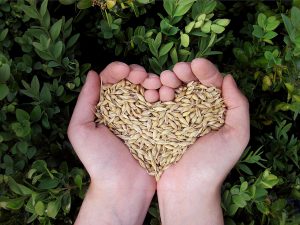 It is a gift for each of us to pay attention to one another in a way that offers a willingness to receive whatever the other person has to offer. I am thankful for this opportunity to connect with my kids and for us to grow in our understanding that often it is the simple things in life that we are most grateful for.
It is a gift for each of us to pay attention to one another in a way that offers a willingness to receive whatever the other person has to offer. I am thankful for this opportunity to connect with my kids and for us to grow in our understanding that often it is the simple things in life that we are most grateful for.
Sometimes my girls give me the same answer for all 3 questions, and I am fine with this as I recognize that maybe being tired overcomes the desire to engage in conversation. I trust that they are offering what they can in the moment and that on a different day I may hear much more when they are ready to share. It is also possible that one event was the highlight of their day and the one thing that does answer all 3 of the questions. When I realize this, I am excited that they were able to engage in an activity that was filled with joy.
The time just before we fall asleep is one of my favorite moments of the day. I know that this can be a magical time when both girls are willing to open up with me and express what they are thinking or how they are feeling, which they might not do during any other time of the day. Every once and awhile, I have tried to get them to answer the questions over dinner only to be confronted with the comment that the day is not yet complete so I will just have to wait until later in the evening.
Over the years, I have grown to realize that this simple time with my kids is one of the best ways to engage in peaceful parenting as it reminds us what we are thankful for and encourages a dialogue that may not have taken place. I am amazed at all the events that they encounter in a day without me. I trust that they are navigating each experience with grace even when it is not so easy. I know that they will talk to me when needed.
As we move into a season where many families are expressing gratitude, I am reminded of how lovely it is for me and my kids to share our thanksgivings on a nightly basis.
Informed decision-making is critical to attachment parenting
Is human nature inherently good or bad? And does this predict what type of parent you will be?
I recently exchanged e-mails with one of my former students about the perennial question concerning human nature: Are humans good or bad?
This question continues to fascinate us. When I lecture about human nature to my students, I like to frame the debate by pitting Thomas Hobbes against Jean-Jacques Rousseau.
 Thomas Hobbes (1588-1679) was an English philosopher and the author of the book Leviathan. Famously, Hobbes declared that primitive human life was “solitary, poor, nasty, brutish, and short.”
Thomas Hobbes (1588-1679) was an English philosopher and the author of the book Leviathan. Famously, Hobbes declared that primitive human life was “solitary, poor, nasty, brutish, and short.”
I use Hobbes to illustrate a pessimistic view of natural man. That is, as illustrated by his famous summation, Hobbes felt that the natural state of man was bestial. According to Hobbes, therefore, it is civilization that steps in and rescues humanity from our primal depravity. In this view, human nature is a nasty thing that human culture rescues. In Hobbes’ view, being civilized is good and being a savage is bad.
 Contrast that with the view of Jean-Jacques Rousseau (1712–1778), the Enlightenment philosopher whose book The Social Contract influenced the French Revolution: “Man is born free, and everywhere he is in chains.”
Contrast that with the view of Jean-Jacques Rousseau (1712–1778), the Enlightenment philosopher whose book The Social Contract influenced the French Revolution: “Man is born free, and everywhere he is in chains.”
In contrast to Hobbes, Rousseau declared that humans in earlier times were “noble savages.” According to Rousseau, humans are naturally and innately good, and it is civilization that turns man into a “beast.” Consequently, Rousseau argued that modern man should seek to restore the conditions of our lost Eden and live a more natural, rather than technological, life.
To summarize, we can create a quick schematic contrast of Hobbes and Rousseau:
- Hobbes — Human Nature = Bad, Civilization = Good
- Rousseau — Human Nature = Good, Civilization = Bad
For Hobbes, civilization saves us from ourselves. Without it, we would regress to a beast-like state. For Rousseau, civilization is killing us. For Rousseau, the goal is to reclaim a more natural existence.
So, who is right?
Unfortunately, by this point in my lecture, only a about two students are awake. So, to show them that this question is actually of practical and not just academic interest, I like to ask the following question: Are you planning to breastfeed your baby?
This question gets the girls awake, for obvious reasons. It gets the boys awake because the word “breast” was used. Human nature, good or bad, can at times be remarkably predictable.
I bring up parenting in the conversation about Hobbes and Rousseau, because it is in parenting where we tend to reveal if we vote with Hobbes or Rousseau.
For example, Hobbesian parents tend to think that a child’s nature is unruly, undisciplined, and selfish — not in an evil sort of way, more of a benign “they don’t know any better.” Thus, these parents tend to emphasize training and structure.
Rousseauian parents tend to think that a child’s nature is innocence and goodness. These parents tend to de-emphasize structure in the child’s environment.
Here are some more possible locations of contrast:
- Painkillers during delivery — Hobbesian parents more likely to use painkillers; Rousseauian parents more likely not to use painkillers.
- Feeding — Hobbesian parents more likely to bottle-feed; Rousseauian parents more likely to breastfeed.
- Feeding Times — Hobbesian parents more likely to feed on a schedule; Rousseauian parents more likely to feed on demand.
- Discipline — Hobbesian parents more likely to spank; Rousseauian parents more likely not to spank.
- Sleeping — Hobbesian parents more likely to allow child to cry in crib until asleep; Rousseauian parents more likely to hold child until asleep.
Now, I’m not suggesting this as some kind of rigorous, diagnostic classification. I’m mostly trying to illustrate a point: Whether we like discussing human nature or not, we are all working with a theory of human nature and that theory of human nature has practical consequences. For example, when parenting, some of us go “natural.” Others are more “technological” — painkillers, formula, behavioral parenting strategies.
And parenting is hardly the only place where we see these differences. We see Hobbesian and Rousseauian contrasts in how we choose to eat, how we choose to use medicine, and how we feel about city life — to name a few things.
Hobbes and Rousseau are still with us. And we, in the choices we make, keep their debate alive.
*Reprinted with permission from Richard Beck, PhD. The original article is published on Experimental Theology.
**Philosophers’ photos from Wikimedia commons.
Positive discipline develops conscience
What being an involved father is all about
Parenting is not about perfection
Building a strong parent-child bond through Playful Parenting
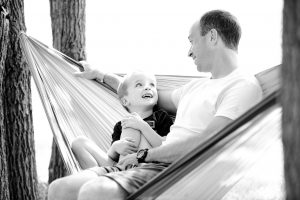 One of the most important and challenging undertakings of parenting is to build strong, close bonds between children and their parents. A strong parent-child connection enables children to become confident, independent, develop healthy relationships, and become a peaceful adult.
One of the most important and challenging undertakings of parenting is to build strong, close bonds between children and their parents. A strong parent-child connection enables children to become confident, independent, develop healthy relationships, and become a peaceful adult.
In his book Playful Parenting, Dr. Lawrence Cohen points out that through play, children explore the world, work through challenging situations and get connected with the people they are close with.
I have found that approaching common parenting struggles with Playful Parenting techniques to be very effective, and it helps to make things easier and more fun for everyone in our family.
Through play, we get to join our children’s world — promoting mutual respect, exploration, and cooperation while enjoying each other’s company.
Using Play to Manage Parenting Struggles
Parents of young children experience many situations where the child resists when they’re asked to do something: They don’t want to pick up their toys or get dressed to go out; they don’t want their hair washed or their nails cut. The list goes on. Making a game out of these tasks can help. It instantly makes the activity more fun and enjoyable for the child and makes it something they’re much less likely to resist.
When my toddler son was into recycling and trash trucks, we made a game of cleaning up his blocks by saying, “Let’s put all the trash in the trash truck.” The blocks were the trash, and the container was the trash truck. When he was 3 and very much into firefighters, we made a game of getting dressed to leave the house by saying, “There’s a fire! It’s time to get in the fire truck. Let’s get on our fire coats and boots!” He’d then be quick to get on his shoes and coat to get in the car.
Many times, parents think they don’t have time for such games. You’re in a hurry to get out the door, so why add in a game and waste more time? But I find that when we play our way through it like this, it actually takes less time for my children to get ready.
Some critics say that parents shouldn’t have to do this and that a child shouldn’t need a game to make them listen. While it’s true that they don’t need it, and there are many other ways to help children cooperate, it does make it more enjoyable. Just like, as an adult, I find it’s more enjoyable to clean while listening to music, or to fold laundry while watching TV. It’s the same concept.
Playing Your Way Through Fears
Play can help release tension and can make what seems scary into something silly. In this way, it can be used to help children work through their fears.
When my son was 4, he was scared during thunderstorms. The sudden sound of thunder was too startling for him, and it kept him tense at bedtime. One night during a storm, I said to him, “What do you think that thunder sounds like? I think it sounds like a train rumbling down the track.” He loved Thomas the Train, so I suggested, “Maybe it’s Thomas!” He started to laugh, and I kept going: “That was really loud. It must’ve been Gordon, because he’s so big!” This turned it into a fun game and made the experience less scary.
Play can also help with minor stresses. A child may come home upset after a hard day at school but then may get to work out some of those emotions by playing school where he is the teacher and in charge.
Dr. Cohen talks more about the idea of using play to handle childhood anxiety in his book The Opposite of Worry.
Connecting with Children Through Play
One part of Playful Parenting is about strengthening connection between parent and child. Children who feel connected and attached to their parents feel closer to them and thus want to cooperate with them. One simple and effective way to connect with our children is to sit and play with them.
Playing can be hard for adults: We’re out of practice, or have low patience, we may have forgotten how to play, or simply feel like we don’t have the time for it. Some people may feel awkward or embarrassed about being silly and goofy if they participate in children’s imaginative play, like a dad who may not want to sit and play with dolls with his young daughter.
However, when we make the effort to be involved in our children’s interests and carve out even as little as 10 minutes a day for one-on-one child-led playtime, our children notice it and respond positively. Deepening our connection with our children makes them more likely to respect us and to want to do what we ask of them. It helps them feel secure and loved, and makes us all happier.

